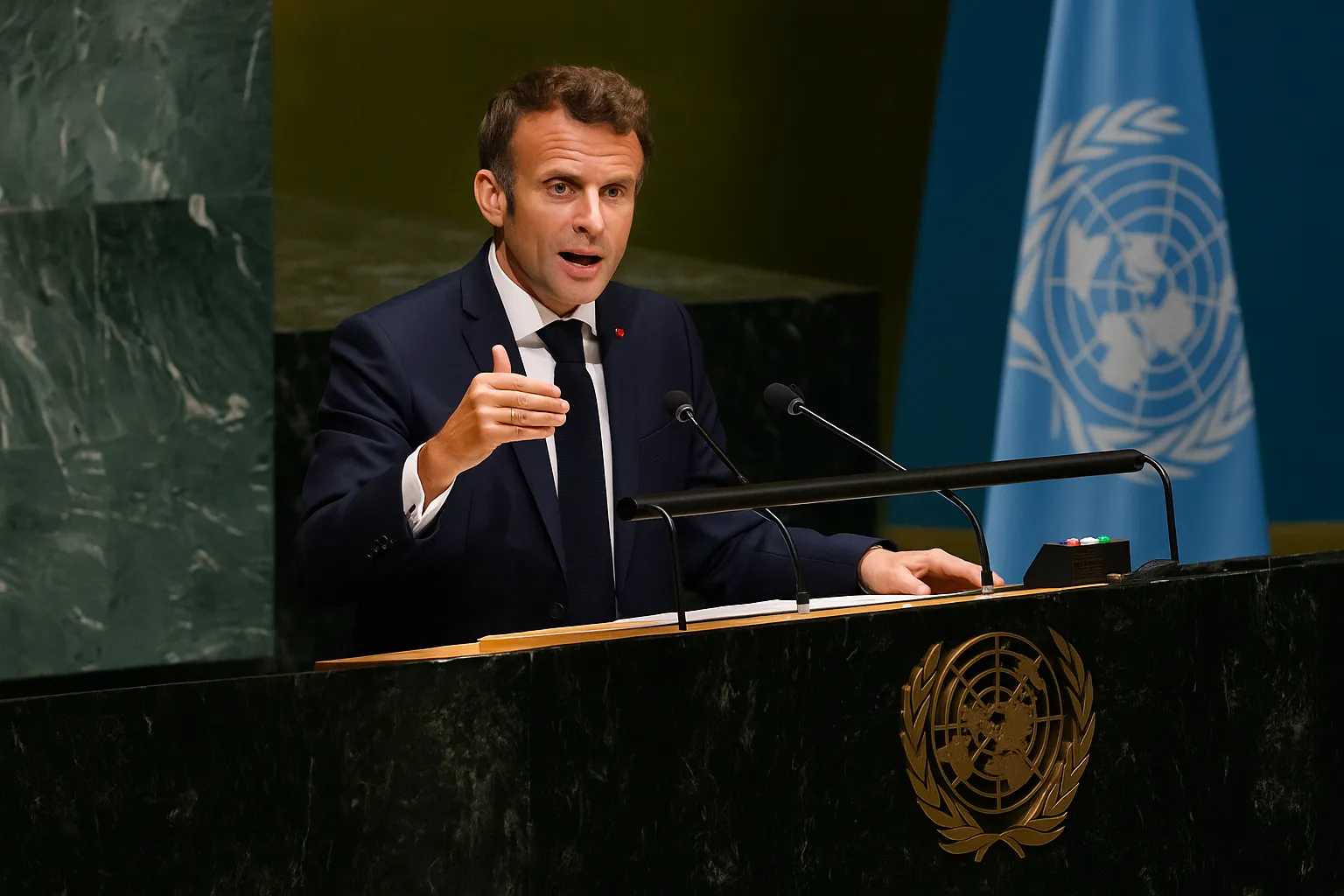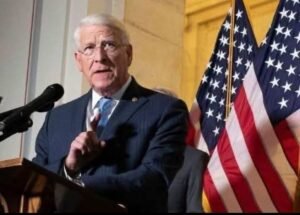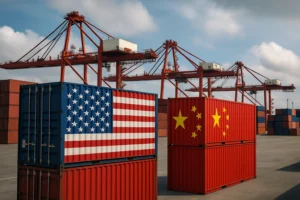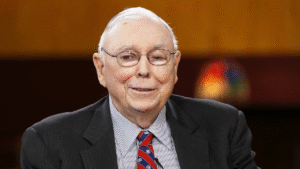The Macron UN speech on Tuesday was more than a diplomatic ritual. It was a defiant moment of confrontation — not with Russia, not with Hamas, but with Washington itself. As Donald Trump dismissed the United Nations as irrelevant, French President Emmanuel Macron stood before the General Assembly and offered a diametrically opposite vision. France, he said, would not walk away from multilateralism. It would fight for it, with Gaza and Ukraine as the proof of his claim.
Context: Trump’s rejection of the UN
Donald Trump has long treated the UN as a punchline. His rhetoric follows a familiar pattern: the organisation is bureaucratic, slow, and powerless. In his speech this week, Trump doubled down on that contempt. He pointed to the wars in Gaza and Ukraine as evidence that the UN had failed. For Trump, America’s strength lies in bypassing the talking shop of New York and cutting direct deals with adversaries and allies alike.
This approach resonates with part of the American electorate. The idea that “globalists” in the UN undermine U.S. sovereignty is now a core tenet of Trump’s politics. For his supporters, the UN is a swamp of elites and diplomats who talk while others bleed. The mainstream U.S. narrative is that the UN is an obstacle, not a solution. Washington, in this worldview, can defend its interests better without layers of international mediation.
Oppositional Argument: Macron’s challenge
The Macron UN speech was deliberately crafted as a rebuke. Macron declared that abandoning the UN means abandoning legitimacy itself. He reminded delegates that the institution was born out of the rubble of World War II to prevent exactly the kind of lawless aggression that Russia unleashed in Ukraine. Without the UN, Macron argued, smaller nations would be silenced and great powers left unchecked.
But Macron’s intervention was not limited to procedural defence. By recognising Palestine as a sovereign state just one day before his speech, he directly challenged the Western consensus that has kept Palestinian statehood on indefinite hold. In effect, Macron was telling Trump: if you say the UN has failed, France will prove it can still act. Recognition of Palestine, coupled with unwavering support for Ukraine, allowed Macron to stand before the Assembly as the only Western leader offering a consistent defence of both sovereignty and justice.
This is where the defiance becomes dangerous for Washington. By elevating Gaza and Kyiv in the same breath, Macron highlights a contradiction that U.S. diplomacy prefers to ignore: America defends borders in Europe but not rights in Palestine.
Analytical Breakdown: causes and consequences
Why did Macron take this gamble? Several factors converge.
First, France sees an opening. America under Trump is retreating from global leadership. Europe’s silence in Gaza has been deafening, leaving space for Paris to act. Recognition of Palestine provides France with credibility in the Global South, where Western hypocrisy is a constant accusation. If Macron wants to position France as the voice of balance, this was the moment.
Second, Macron knows Ukraine cannot be defended on European unity alone. Trump is pressing hard to scale back U.S. support. By tying Gaza and Ukraine together, Macron is betting that Europe can no longer afford selective morality. To defend Kyiv while ignoring Rafah is to lose legitimacy in the eyes of billions. France needs to show it can articulate a universal principle.
Third, there is a domestic dimension. Macron’s approval ratings at home have suffered, especially among younger voters and France’s Muslim population. Recognition of Palestine is not just foreign policy; it is also an attempt to reclaim moral leadership domestically. Critics will call it opportunism, but it is a calculated one.
The consequences are already unfolding. Israel reacted with fury, accusing Macron of rewarding terrorism. The Biden administration offered a muted response, caught between its alliance with Israel and its need to manage transatlantic relations. Trump’s camp, meanwhile, seized on Macron’s speech as proof of French arrogance. But in much of the Global South, Macron’s words were welcomed. Editorials from Cairo to Johannesburg framed France as finally acknowledging the double standards of Western diplomacy.
Human Perspective: what it means on the ground
Diplomacy often feels remote, but gestures matter to people living under siege. In Gaza, Macron’s recognition of statehood is not bread or water — but it is oxygen. It signals that the Palestinian cause has not been erased. Families in Rafah and Khan Younis heard in his words a rare echo of their struggle in a Western leader’s voice.
In Ukraine, the Macron UN speech offered reassurance that Europe is not breaking under Trump’s pressure. While Washington debates budgets and fatigue, Macron’s clear commitment signalled that France will not walk away. For Ukrainians under bombardment in Kharkiv or Odesa, such solidarity has weight. It reminds them they are not bargaining chips in Washington’s political theatre.
Yet for ordinary Americans, Macron’s defence of the UN may sound like elite sermonising. Many see no value in paying for foreign wars or funding global institutions. Macron is not addressing them directly — but he is challenging the narrative that American withdrawal equals strength.
Counterarguments
Sceptics are not wrong to question whether Macron’s stance has practical teeth. France does not command the military weight to enforce peace in Gaza. Recognition of Palestine does not end bombardment. Even in Ukraine, France’s support cannot substitute for American firepower. Some argue Macron risks alienating Israel without improving Palestinian lives, or that his words will fall flat without concrete action.
But to dismiss the speech entirely misses the point. In diplomacy, symbols are not trivial. Recognition changes discourse, shifts alliances, and creates new expectations. Macron is gambling that today’s symbolic act could become tomorrow’s leverage in peace talks.
Others argue that Macron is motivated less by principle and more by ambition: carving out a leadership role for France in a world where Germany is paralysed and Britain is adrift. There is truth in this — but ambition and principle are not mutually exclusive. Leaders rarely move without calculation. The question is whether the calculation aligns with justice.
Conclusion: Europe’s fragile assertion
The Macron UN speech was not theatre. It was a strategic assertion that Europe can no longer sit quietly while Trump dismantles multilateralism. Macron put France on the line: defending the UN, recognising Palestine, doubling down on Ukraine. It is a bold attempt to reconcile principle with power, to speak to both Gaza’s despair and Ukraine’s resilience.
Whether it succeeds depends less on Macron than on Europe itself. If other European states follow his lead, the EU could present a united front against both Trump’s unilateralism and Putin’s aggression. If they remain silent, Macron’s gesture will be remembered as a lone French flourish, noble but futile.
The choice is stark: either Europe embraces Macron’s gamble and asserts itself, or it lets Washington’s rejection of the UN define the century. History will not wait for cautious leaders.
External Links
334 views









